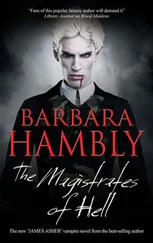Barbara Hambly - 02 Fever Season
Здесь есть возможность читать онлайн «Barbara Hambly - 02 Fever Season» весь текст электронной книги совершенно бесплатно (целиком полную версию без сокращений). В некоторых случаях можно слушать аудио, скачать через торрент в формате fb2 и присутствует краткое содержание. Жанр: mystery, на английском языке. Описание произведения, (предисловие) а так же отзывы посетителей доступны на портале библиотеки ЛибКат.
- Название:02 Fever Season
- Автор:
- Жанр:
- Год:неизвестен
- ISBN:нет данных
- Рейтинг книги:4 / 5. Голосов: 1
-
Избранное:Добавить в избранное
- Отзывы:
-
Ваша оценка:
- 80
- 1
- 2
- 3
- 4
- 5
02 Fever Season: краткое содержание, описание и аннотация
Предлагаем к чтению аннотацию, описание, краткое содержание или предисловие (зависит от того, что написал сам автор книги «02 Fever Season»). Если вы не нашли необходимую информацию о книге — напишите в комментариях, мы постараемся отыскать её.
02 Fever Season — читать онлайн бесплатно полную книгу (весь текст) целиком
Ниже представлен текст книги, разбитый по страницам. Система сохранения места последней прочитанной страницы, позволяет с удобством читать онлайн бесплатно книгу «02 Fever Season», без необходимости каждый раз заново искать на чём Вы остановились. Поставьте закладку, и сможете в любой момент перейти на страницу, на которой закончили чтение.
Интервал:
Закладка:
Benjamin January Book 2
Fever Season
Barbara Hambly
Special thanks to the Staff of the Historic New Orleans Collection for all their help; to Kate Miciak for her assistance and advice in redirecting the story; to O'Neil deNoux; and, of course, to George.
NOTE ON TERMINOLOGY
As in my previous book of this series, A Free Man of Color, I have employed, as far as possible, the terminology of the 1830s, which differs considerably from that in use today. In the 1830s, as far as I can tell, creole was generally taken to mean a native-born white descendant of French or Spanish colonists. If a person of African parentage was being referred to, he or she was specified as a creole Negro, that is, born in the Americas and therefore less susceptible to local diseases than Congos-African-born blacks. There was a vast distinction between black and colored. The latter term had a specific meaning as the descendant of African and European ancestors. Sang m?l? was one of the French terms: "mixed blood." Any colored person would have been deeply offended to be referred to as "black," since black meant "slave"; and the free colored had worked long and hard to establish themselves as a third order, a caste that was neither black nor white. Likewise, they were careful to distinguish between themselves and slaves of mixed race and between themselves and freedmen, whatever the percentage of African genetics in their makeup. Given the economics of the time and the society, this was a logical mechanism of survival. That they did survive and thrive, and establish a culture of amazing richness that was neither African nor European, is a tribute to the stubborn and wonderful life force of the human spirit.
One
In fever season, traffic in the streets was thin. Those who could afford to do so had left New Orleans with the ending of Lent; those who could not had all through the long summer hurried about their business as if Bronze John, as they called the sickness, were a creditor one could avoid if one kept off the streets. Midday, the molten September heat raised steam from the water in the French town's cypress-lined gutters and the rain puddles in the soupy streets. Mephitic light filtered through clouds of steamboat soot from the levees and gave the town the look of a grimy but inexplicably pastel-walled hell. Only those whose errands were pressing walked the streets then.
So it took no great cleverness on Benjamin January's part to realize that he was being followed. Charity Hospital, where he'd spent the night and all the morning among the dying, lay on the uptown side of Canal Street, the American side. It was against January's nature to spend more time on that side of town than was absolutely necessary, to say nothing of the fact that Americans seemed to regard all free persons of color as potential slaves, money on the hoof going to waste that could be going into their pockets in the big markets along Baronne and Levee Streets. Americans made no distinction, as the French were careful to do, between African blacks-be they slaves or freedmen-and the free persons of color whose parents had been both colored and white. Not, January reflected wryly, that it made a great deal of difference in his case.
But even in fever season, when men and women, black and white and colored, were only hands to hold off Bronze John from one another-to carry water and vinegar and saline draughts, to fan away the humming swarms of mosquitoes and flies-he felt uneasy uptown. Maybe that was why he realized so quickly that someone was dogging his steps. His head ached from twenty-four hours without sleep. His senses felt dulled, as if someone had carefully stuffed his skull with dirty lint soaked in the stinking fluids of the dying; his very bones weighed him down. His last patient that day had been a nine-year-old girl who'd walked the twelve streets to the hospital from the levee where she'd been selling oranges. Her mama, she said in English, before delirium claimed her, would whale her for not staying on to finish the day. The child had died before she could tell anyone who her mama was or where that lady could be found.
As of that morning, no newspaper in the town had yet admitted that there was an epidemic at all. The fever had first come to New Orleans in January's sixteenth year. In those days you never heard English spoken at all, though the city already belonged to the United States. He'd been studying medicine then with Dr. Gomez and had followed his teacher on his rounds of the hospitals; it seemed to him now, twenty-four years later, that the ache of grief and pity never grew less. Nor did his fear of the fever itself. He wasn't sure exactly what it was that made him realize he was being stalked.
A glimpse from the corner of his eye as he dodged across Jackson Street among the ambulance wagons, the produce carts, the drays of sugar and indigo on their way to the levee from the inland plantations along the lake. A horse lurched to a stop, tossed its head with an angry snort. A driver cursed in Spanish. Steps away, Freret Street lay deserted under the hot weight of brazen sky, but January knew he wasn't alone. He quickened his stride.
If he walked down Canal Street, among the hip-high weeds, strewn garbage, and dead dogs of what French and Americans alike called the "neutral ground," he would be spared at least some of the stenches of the cemeteries. There seething corpses lined the walls three-deep, like bales on the levee, waiting for tomb space and the men to bear them in. But though he was an accredited member of the Paris College of Surgeons who had practiced at the HStel Dieu in that city for six years, January was perfectly well aware that he looked like a field hand: six feet, three inches tall, powerfully built despite the dust of gray that now powdered his short-cropped hair, his skin as glossy black as his African father's had been. That was one reason why it was only in the fever season that he practiced medicine. The rest of the year he played piano to earn his bread. It was an injustice he'd accepted, upon his return to New Orleans from Paris, nearly a year ago. And things had changed in the city since his departure in 1817.
So he followed Rue Villere downstream, past shabby cottages and grubby shacks in rank jungles of weed, the stench of untended privies, of gutters uncleaned for weeks, and of sties and coops, neglected by their owners, thick as fog around him. An unpaved path, mucky from the morning's rainstorm, led him toward the river.
He was definitely being followed. He didn't want to look back; he couldn't tell by whom.
Rue Douane, the first street of the French town itself, was usually alive with cart and foot traffic. Today, there were only two women in the faded calico of poverty, hur rying with bowed heads. Those, and the dead-carts that lurched toward the cemeteries with their stiffened cargoes wrapped in cheap Osnaburg sheets and their throbbing armies of attendant flies. Like the Americans uptown, the householders here burned piles of hair and hooves from the slaughteryards or smudges made up with gunpowder, to clear the disease-ridden miasma from the air. The smell was foul-charnel house and battlefield rolled into one.
The Four Horsemen, January thought, coughing, would bear that smell on their wake when they reaped the plain of Armageddon with their swords.
He cut across Rue Douane midway between two streets, mud sucking his boots. Just before he sprang across the gutter he glanced back. He saw no one.
What do I do? he wondered. What do I do?
The houses on the other side of Basin Street were mostly small, but built better than those that bordered the swampy town pastures. Neat cottages of plaster and brick lined Rue des Ramparts and Rue Burgundy, pale yellows and celery greens, pinks and sky blues under the savage light. For years, wealthy bankers and planters and brokers had been buying their quadroon and mulatto mistresses dwellings like these, along the back edge of the old town. These days just as many belonged to respectable craftsmen and artisans, clerks and tailors, whose wives and families turned their eyes from their sisters and cousins and neighbors of the demimonde.
Читать дальшеИнтервал:
Закладка:
Похожие книги на «02 Fever Season»
Представляем Вашему вниманию похожие книги на «02 Fever Season» списком для выбора. Мы отобрали схожую по названию и смыслу литературу в надежде предоставить читателям больше вариантов отыскать новые, интересные, ещё непрочитанные произведения.
Обсуждение, отзывы о книге «02 Fever Season» и просто собственные мнения читателей. Оставьте ваши комментарии, напишите, что Вы думаете о произведении, его смысле или главных героях. Укажите что конкретно понравилось, а что нет, и почему Вы так считаете.






